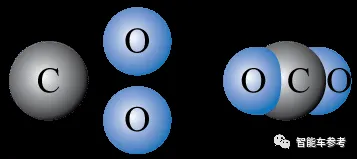Japan's Toyota Motor, the world's largest automaker, will invest 1.5 trillion yen ($13.6 billion) in battery development and its supply system over the next decade to maintain its competitive edge in price and durability for electric and hybrid vehicles.
While Toyota did not disclose any plans for the battery plant or details of its investment geography, Masahiko Maeda, the company's chief product director, said Toyota will invest nearly 1 trillion yen by 2030 to build a total of 70 production lines for electric vehicles.
Toyota aims to improve the power consumption of cars, also known as a measure of electricity used per kilometer, by 30%, starting with the Toyota bZ4X compact SUV. Toyota hopes to halve the cost of batteries by 2025-2030 by capitalizing on its strengths in developing cars and batteries. Previously Toyota announced plans for electric vehicles that show the company hopes to sell 8 million partially or fully electric vehicles by 2030, of which about 2 million will be fully battery or fuel cell, and the remaining 6 million will be gasoline-electric hybrids or plug-in hybrids.
For its part, Toyota said that the company's goal of starting production of solid-state batteries by around 2025 has not changed. For the development of solid-state batteries, Toyota is still on track. Maeda acknowledged, however, that the short battery life, a serious drawback of solid-state batteries, is still trying to solve this problem in the search for the best materials. There's no room for optimism, and there are challenges. Identifying "short battery life" as a problem brings Toyota one step closer to commercialization, and the company will use solid-state batteries in hybrids such as the Prius, bringing the technology to market faster.
Toyota has a technological lead in solid-state batteries. Solid-state batteries have higher energy density, can be recharged more quickly, have longer driving ranges, and are safer from fires than the liquid batteries currently in use. However, mass production of solid-state batteries is difficult because they are expensive to manufacture and prone to cracking as they expand and contract during use.
Previously Toyota launched the Prius gasoline-electric hybrid car, which was quite popular in the market, and is now working on expecting to launch its first all-battery car next year. Market analysis suggests that Toyota, an automotive giant, is moving slowly in its transition to all-electric vehicles.
Currently, many countries around the world are actively introducing relevant industrial policies and regulations to improve the electric vehicle industry chain, accelerate the promotion of electric vehicles, and promote low-carbon and environmentally friendly travel. Major automobile enterprises and battery companies are working at full steam to lay out electric vehicles and their industrial chain, especially the power battery market.
Electric car leader Tesla said it expects to grow car sales by an average of 50% per year going forward. Tesla delivered about 500,000 vehicles in 2020 and is on track to deliver more than 800,000 in 2021. At Battery Day last September, Tesla unveiled its 4680 induction lug large cylindrical battery technology. Compared to the 2170 battery previously used by Tesla, the 4680 battery is larger, and according to official data, the energy density of the 4680 battery will be increased by 5 times, the output power will be increased by 6 times, the cost per kilowatt hour will be reduced by 141 TP3T, and the range of the model equipped with the battery can be increased by 161 TP3T. the market is expected to start mass production of this new technology in 2023.
Volkswagen plans to spend about $80 billion between now and 2030 on vehicle electrification and autonomous driving. VW says the share of electric product sales will reach 50% in 2030.Volkswagen has also invested in QuantumScape (QS), a leader in solid-state batteries, committing $300 million to the latter and setting up a joint venture with it for commercial production of the batteries. In July, QS announced that it was moving forward with 10-layer battery testing, an important step toward commercial deployment of solid-state batteries.
In June, GM announced an $8 billion investment in two battery plants for electric vehicles. Some of these batteries are produced for the sake of partner Honda Motor (HMC).
Ford announced a battery joint venture with South Korea's SK Innovation in May. Total EV spending from 2021 to 2025 is expected to be about $30 billion.
[Article source: Wall Street Journal]
[Zhongshun Xinneng Marketing Department March 7, 2022 Responsibility: Xiao Zheng]
* Reproduced for the purpose of conveying more information, and does not mean that we endorse its views and position or are responsible for its authenticity.




